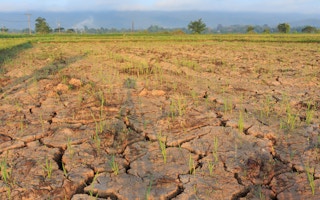When hearing about the science of, or human response to, global climate change, there is sometimes a temptation to just ‘switch off’.
The issue is no longer novel and the days when Al Gore was presenting ‘An Inconvenient Truth’ and receiving the Nobel Prize were almost ten years ago. In 2015, as much as awareness of the problem remains high, there is a sense that the political, policy and economic responses continue to lag.
This is a dangerous mindset; climate change, much like the Internet, is here to stay, and with each day, it only gets worse, not only because of the growing scientific evidence and lived experience of its effects, but also because changes in policy by government and others have the potential to either save or cost a business money.
This December, at ‘COP 21’ in Paris, nations have been tasked with negotiating an international climate agreement. The agreement has the potential to generate a cascading effect through the global economy, with all significant businesses being asked by government and civil society the extent to which they are helping or hindering emissions reduction.
It is potentially the most significant international meeting on global climate change since the first Earth Summit in 1992.
Ten years ago, I was working at 10 Downing Street as the senior advisor to the British Prime Minister on climate change and sustainability. It was critical then, and it is critical now that people understand that climate change is far more than an environmental problem. With the dynamics that lead to emissions growth, global warming and a heightened risk of severe climate events being intrinsic to economic activity, it is vital that economic actors understand how they can reduce emissions and improve wider sustainability performance.
Each year, there is a growing body of evidence that the global climate problem is far more than a future environmental challenge. Whether it is
- the costs associated with severe weather events such as Hurricane Sandy which devastated New York in 2012;
- the destruction wrought by Typhoon Haiyan killing more than 6,000 people in the Philippines in 2013;
- the emerging policy environment as China and the United States agree on bilateral approaches to reducing the risks of climate change, or
- President Obama establishing powerful domestic policies to promote clean energy,
climate change is far more than an issue of concern to environmentalists. We are now at a stage where any major business seeking to grow in new markets must consider whether, and how much, they might contribute to emissions.
And as the evidence of climate change being a clear and present risk becomes more evident, consumers and environmental groups are increasingly concerned about the environmental performance of global businesses.
Look at major agribusinesses operating in Southeast Asia such as Syngenta, which is implementing their ‘good growth plan’ or Unilever, which is seeking to address human development goals and reducing the risks of climate change at the same time.
Tackling climate change is no longer a niche concern among just a few firms, for corporations, measuring, understanding and reporting on emissions performance is part of building and maintaining their corporate reputation and positioning as ambitious players in the global economy.
I am much looking forward to being in Singapore in November to be part of the Responsible Business Forum. It is a conference taking place at the right time - just before December’s climate change conference in Paris - with the right people involved, and in the right place, Singapore. The city is at the heart of Sutheast Asia, the region predicted by the Organisation for Economic Co-operation and Development to enjoy strong average growth of 6.5 per cent a year between 2015 and 2019.
Whether this growth will worsen the global climate problem or be a chance for Southeast Asian firms to demonstrate that development can be achieved sustainably, is a matter of choice, for many businesses operating in southeast Asia responding to the risk of climate change could be a powerful opportunity. As governments and customers in distant markets start asking more specific questions about a company’s sustainability and emissions performance, those that can answer them are likely to have a distinct advantage.
Now based in Sydney, Nick Rowley is a senior consultant working as part of Robertsbridge. From 2004 to 2006, he was senior advisor to British Prime Minister Tony Blair. He will be on the programme at the Responsible Business Forum and chairing an invitation-only seminar on climate change and business on the afternoon of 3 November. A version of this article was published on the Global Initiatives website.











